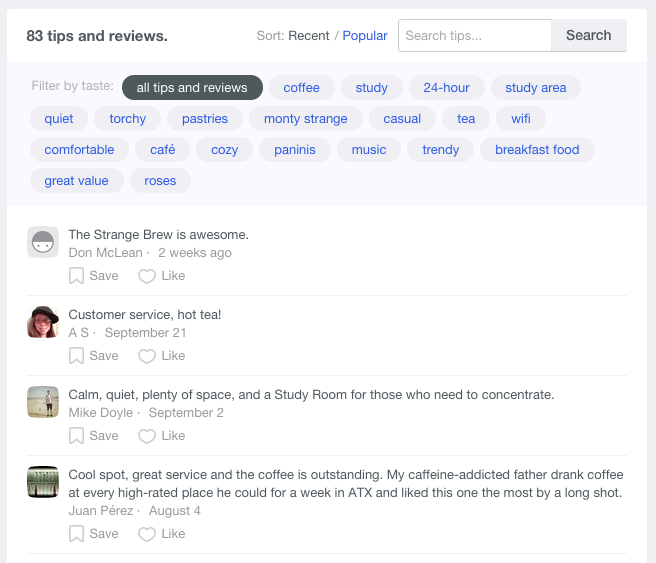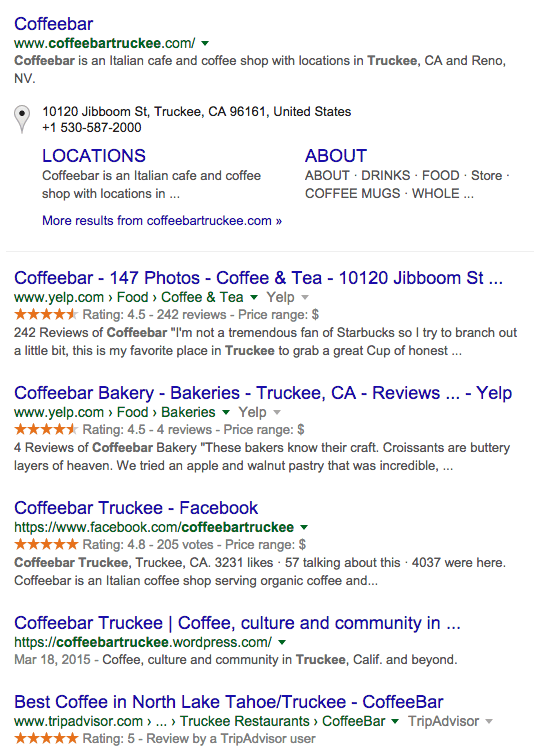4 Reasons Local Listings Might Be Damaging Your Small Business
If you’ve been trying to increase your local search engine rankings for any time at all, chances are you’ve started to experiment with different kinds of local listing options.
Local listings are a potentially incredibly important piece of your local SEO strategy, but many business owners end up outsourcing or not spending enough time on the process – an approach that can lead to serious problems.
In this article, we’ll cover four reasons local listings might actually be damaging your small business if not managed correctly. You’ll want to be on the lookout for all of them to make sure you’re making the most of the local listing opportunity.
Let’s get going!
1. Outdated Business Info Could Be Harming You With Google
Google takes accurately reported directory information very seriously. According to a recent report from Moz, having accurate Name, Address and Phone Number (NAP) information is a highly important local ranking factor.
If you’ve moved premises in the past or haven’t spent time monitoring your local listings, there could be errors lurking somewhere. Even something as small as an innocuous looking typo could be throwing things off.
Getting your local listings in order and ensuring accuracy takes a little extra effort but it’s worth it. You’ll need to kick things off by tracking down any local listings that are currently live and there are a couple of straightforward ways of doing this.
The first is using Moz Local. It’s $84 per year for the service, but it gives you highly convenient options for tracking and managing your listings in an organized manner.
Even with the level of management Moz Local gives you, some local listings might slip through the cracks so it’s worth having another option available.
You can get also creative with search operators to uncover listings other services might have missed. Search operators will work well for popular sites where duplicate and incorrect listings tend to pile up. We’ve illustrated some examples below.

Searching for local listings on Google.

Searching for local listings on Yelp.

Searching for local listings on Yellow Pages.
If you’re interested in combing through more local directories with this technique, check out this useful list of local search operators.
Once you’ve uncovered your local listings, it’s time to see what needs fixing. Schedule time once a month for you or one of your team to check and maintain your listings. You’re looking for three things: duplicates, incorrect information and incomplete information.
2. Confusing Location Information Could Be Eroding Visitor Trust
Our second point follows naturally on from the issue of incorrect listing information we’ve just highlighted. It’s not just search engines who’ll be upset if your details are wrong, potential customers could also be antagonized. You can imagine the sheer frustration visitors would experience if they showed up at a particular address only to find your business isn’t actually there.
It’s hard to predict exactly where people will find your details online – that’s why everything must be lined up across the board. You’re looking for clear, concise and consistent information that makes life simpler for potential customers.
Confusing directions, for example, are not going to get you off on the right foot with people. Studies show that 73% of people lose trust in businesses with inaccurate listings, and 67% lose trust if they have trouble following directions.
3. Outsourcing Could Be Costing You Customer Relationships
If you haven’t been keeping close track of the creation of your local listings, a couple of problematic issues often arise. The first is that whoever you’ve outsourced the creation of local listings to may simply have done a sloppy job. We’ve outlined the consequences of this in our first two points.
The second point is that you may not have actual access to the accounts used to set up the local listings. This is an obvious problem when it comes to correcting information but it’s also a killer in terms of building relationships with customers.
Most online review spaces offer the ability to respond to reviews (negative or otherwise) and this is a key part of engaging a local audience and showing that you’re actively involved. If you’re locked out of your account, or not checking reviews yourself, that opportunity goes out the window.

Foursquare is one of many local review sites that provide ample opportunities for customer interaction.
Popular local listing sites that enable you to directly engage with customers include Yelp, Google My Business, Angie’s List, Foursquare and Merchant Circle. Make sure you have full access to your business’ account on these types of sites and that you’re reaching out to customers directly to build relationships.
4. Poor Local Listings Could Cost You Local Ranking Clout
The more you dominate your local listings, the more traffic you get and the more potential leads you’ll be generating. Local listings play a big role in local SEO.
Sites such as Bing Places, Facebook Ratings & Reviews, Google My Business, Yahoo! Local Listings and Yelp already have built-in authority since they’re high-level domains.
By creating a presence on these sites, you’re not just putting your information where people can find it, you’re also building high-quality links and expanding your opportunities to appear in search results as these sites usually rank highly for local queries.

You should aim to have your company website and local listings inhabit every relevant search engine spot.
High-quality listings are the key here. Entries that are incomplete, inaccurate or duplicated won’t rank well and leave the door open for competitors to take your place in the rankings.
(Bonus!) 5. Local Listings Can Actually Harm the Rest of Your Local Marketing Strategy
Poor quality local listings could be negatively affecting your other marketing strategies without you knowing it. Getting your local listings in order should be step one of trying to increase your local rankings.
[Tweet “Effective local listing management should be your number one priority to grow your local search engine presence.”]
Too many companies end up trying to fix other parts of their marketing strategy without fixing their foundation first.
For instance, you could be trying to generate leads and traffic by implementing a local content marketing strategy. This is a smart move, but the results you achieve will only be a fraction of what’s possible if your ducks aren’t already in a row. Give your wider local marketing strategies the best possible chance to succeed by fixing your local citations first before pulling the trigger on new initiatives.
Conclusion
Managing your own local listings can be time intensive but it’s at the core of dominating online. The problems we’ve listed above are all easily avoidable by simply making local listing management a priority, and clearing some time to put it on a schedule each month.
Get your processes dialed in, make sure your information is consistently concise and up to date, and you’ll soon start seeing the results in both search rankings and your small business generally.
Have you run into any of the issues we outlined above? Or got tips to share? Get in touch via the comments and let us know!






